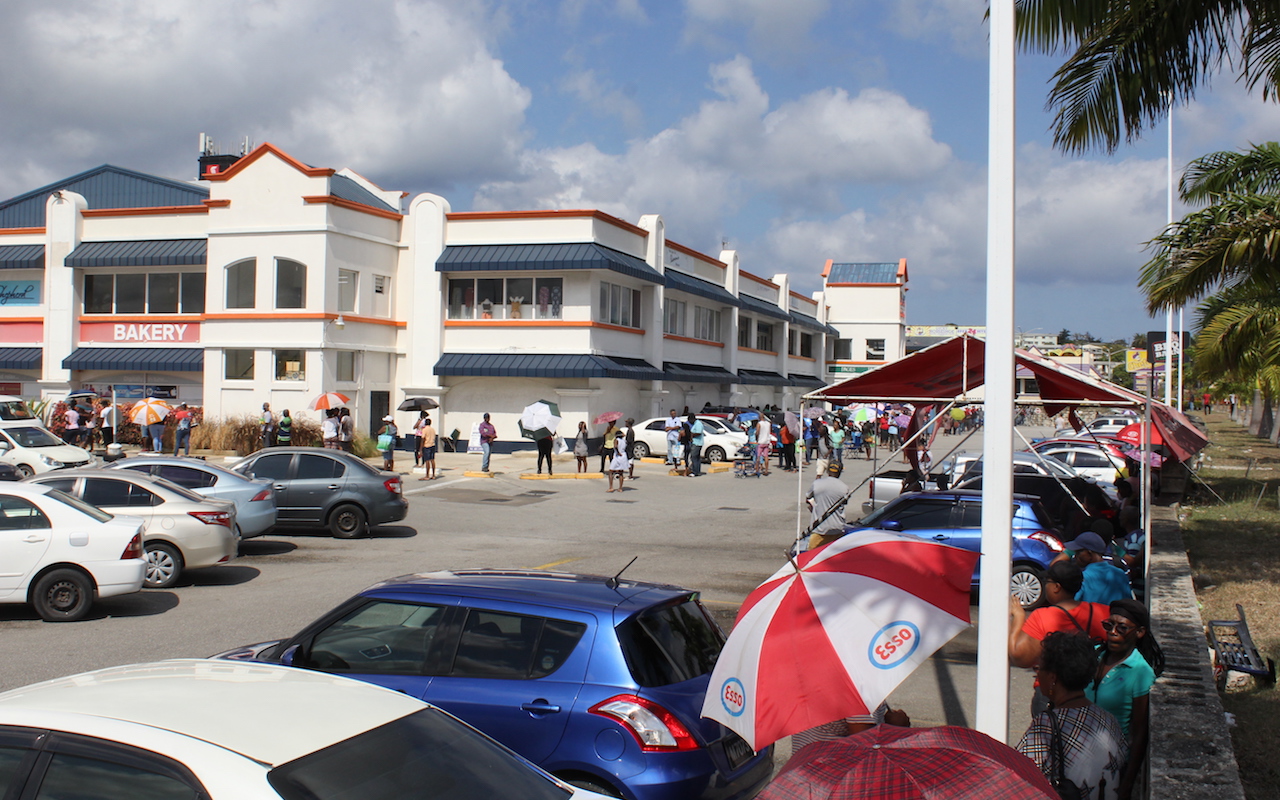This third day of April, in the Year of Our Lord Two Thousand and Twenty, was, in the long and storied history of our island nation, not our finest hour.
It was by any yardstick for the public health, public order and good governance of Barbados an unmitigated disaster.
Indeed, if human behaviour is what turns hazards into human disasters, then unknown thousands of Barbadians may have triggered a viral disaster in which weeks of ordinary social intercourse were concentrated in several hours of chaos, confusion and disorder.
Weeks of best efforts at social distancing to contain a raging contagion which, by every account in our receipt, is leading to a wave of death and severe illness, were dashed because the order was given to close all supermarkets for two weeks – in 24 hours.
It may well be written one day that never in the course of our island history have so many done so much harm to so many more in so few hours.
Today cruelly exposed the dangerous limitations of politics intersecting with public health, and economics versus epidemiology.
Indeed, it could have gone another way.
And not for the first time but on a rare occasion we think it prudent to give this space to another voice not a member of our editorial board.
Perhaps, at the next meeting with “stakeholders” – people with vested interests in the outcome of their deliberations with the Government – the ministerial task force would do well to take in the perspectives of those willing to think beyond the boundaries of their job descriptions.
Such a voice of reason we have found in the president of the Barbados Economics Society, Simon Naitram, who a week ago warned that we should move to safeguard human lives rather the economic bottom line. Yes, an economist said so – for what economic recovery is possible if, to borrow from John Maynard Keynes, in the long run, we are all dead?
We reproduce from his blog – simonnaitram.com – without his permission but in the public interest, and your right to know, his commentary on a day we would sooner forget but which we may well live to regret:
Simon Naitram: Some simple economics of shopping
Here are some simple policy economics of shopping. We’re facing a public health crisis and the aim is to get people to stop gathering in small spaces. Supermarkets are a major bottlenecks for crowds.
So our first instinct might be to limit the number of people in the supermarket. Does that work?
Let’s guess that one person shops for two people and they go to the supermarket every week. This gives around 150,000 shoppers on average per week.
Rough calculations mean I’d expect around 60 people on average in each supermarket per hour each day. If you limit each supermarket to 25 shoppers per hour, that means you have an excess of around 35 each hour. In four hours you’d have an excess of 140 people waiting outside. You immediately get the exact opposite result of what you wanted. Instead of bunching inside, people bunch outside.
Okay, second option. What if we limit the hours supermarkets can open? Does that work?
If you reduce opening hours to six hours a day, then instead of 70 people in the supermarket each hour, you end up with an average of 120 people in the supermarket each hour. Now people are bunching inside!
Third option: let’s close the supermarkets. How do we even do that?
People smooth their consumption. That is, we buy groceries often. We don’t shop once for the entire year unless you’re on a tuna and Sodabix diet. So people need to shop every week or so.
You now have two options of how to close the supermarkets. Either you announce that with immediate effect, all supermarkets are closed. Or you announce that supermarkets will be closed from some future date onwards.
In the first case, no one has any chance to do any extra shopping. You perfectly stop any social gathering. But you would have to provide some alternate means of people getting food. For example, you could announce that all supermarkets will be closed to customers but will be doing deliveries. That way you don’t get a riot.
If you announce that supermarkets will close in a day or two, then people have a chance to respond. If there’s even a small chance that you won’t be able to get groceries over the coming weeks, then everyone needs to do a lot of shopping immediately. Now you end up with around 250 people per hour in each supermarket.
Final option: lengthen opening hours. This sounds completely wrong, right?
If everyone knows the supermarkets will be open for 24 hours per day for the next two weeks, there’s no reason to go to the supermarket right now. According to our simple calculations, you’d actually get 30 shoppers per hour on average. Tada! You’ve just about met your social distancing goal.
Policy can be counterintuitive, and it’s important to think through how people will respond to your policies. Sometimes we miss the unintended consequences of policy decisions, and it’s important we have as many perspectives as possible so we catch all the possible outcomes,




